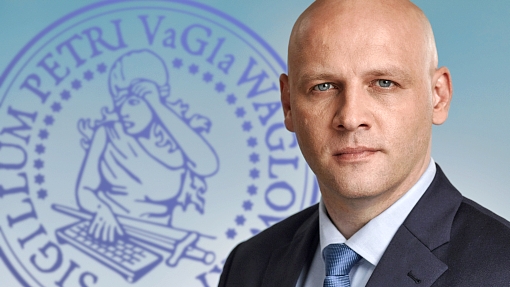Prace nad globalnym prawem własności intelektualnej w niektórych notatkach WikiLeaks
Przecieki WikiLeaks ujawniają trochę kuchni dotyczącej prac nad globalnym prawem własności intelektualnej. Udostępniono więc już depesze z Madrytu i Paryża, w których - odpowiednio - komentowano i odnotowywano "od drugiej strony" te wydarzenia, które ja opisywałem m.in. w notatkach Hiszpania ogranicza dozwolony użytek osobisty oraz Ustawa "Hadopi" przeszła przez francuski Parlament, pojawiają się pytania: co dalej?. Zastanawiam się, czy w depeszach z Polski, gdy już zostaną ujawnione, znajdziemy jakieś znajomo brzmiące nazwiska, nazwy instytucji i organizacji.
O tym, że dostrzeżono, że w polskim procesie legislacyjnym, związanym z prawem autorskim, są "naciski", pisałem w tekście O tym, że jesteśmy w "ostrym kryzysie" i o lobbingu w sferze prawa autorskiego. Takie wycieki WikiLeaks, jak #09PARIS559, #09PARIS1267, #09MADRID982, #09MADRID1152, pokazują, że USA bacznie przygląda się tworzeniu przepisów związanych z prawem własności intelektualnej w różnych krajach. Prawdopodobnie przygląda się również tym pracom w Polsce.
W depeszach odnotowano "robocze śniadania", w trakcie których sygnalizowano przedstawienie projektów ustaw, sygnalizowano postępy prac nad porozumieniami między poszczególnymi organizacjami. Na przykład w depeszy z 6 października 2009 Ambasada USA w Madrycie pisze:
Secretary of State for Telecommunications and the Information Society Francisco Ros told Econoffs at an October 6 AmCham breakfast that "within a matter of days," the GOS will announce a series of measures designed to tackle Internet piracy. The President of the Coalition of Creators and Content Industries reported separately that the Coalition may reach a "de minimis" agreement with the association of Internet Service Providers (Redtel) in the next week or two, leading to a government initiative. In his formal remarks at the breakfast, Ros briefly addressed IPR issues, characterizing the assertion by copyright-dependent industries that Spain has one of the highest Internet piracy rates in the world as an "urban legend." USG officials and U.S.-based industry representatives will have an opportunity during Ros's October 19-22 visit to Washington to challenge this view.
W innej depeszy z Madrytu, z 2 grudnia 2009 roku, czytam:
As part of FICOD 2009 (see ref A), on November 18 the Spanish government hosted a Conference on IPR in the Digital Environment. The Conference featured several speeches and a series of roundtables on different aspects of online IPR protection. Michele Woods of the U.S Copyright Office was a panelist in a roundtable on policies and legislative measures. MPAA CEO Dan Glickman delivered remarks outlining the rights-holders' point of view. The Conference was informative, with high-quality presentations The roundtable discussions helped shed light on efforts underway in various countries to address the problem of Internet piracy; the Conference was thus particularly timely as the GOS is expected to unveil a series of measures to combat piracy-promoting websites by the end of the year.
Tutaj jest też komentarz autora depeszy:
Though 2009 has been a frustrating year for right-holders, there is a good chance it will end on a positive note. In a meeting with Charge, MPAA CEO Dan Glickman expressed satisfaction with his meetings with Industry, Tourism, and Trade Minister Miguel Sebastian and Minister of Culture Angeles Gonzalez-Sinde. Sebastian, he said, was quite forthright and specific about the Commission's work: It will deliver its recommendations by year's end; these will include amending the law to give government more tools to combat piracy; and one component will be "an administrative course of action" to block offending websites. According to various sources, State Secretary Ros (who reports to Sebastian and was present at his meeting with Glickman) and his staffers had been opposing such an administrative remedy in the Commission's discussions (refs B-C), but have apparently been brought around by the other Ministries represented. Rights-holders, however, remain concerned that the government may implement only half-measures. Promusicae staged a demonstration in front of MITYC on December 1 and presented Minister Sebastian with a peition signed by 2,500 music professionals calling on the government to take "valiant measures, as the French and British governments have already done, to protect their culture and jobs.
Depesze z Madrytu komentowane są już w hiszpańskiej prasie, jak np. w tekście ELPAÍS.com: EE UU ejecutó un plan para conseguir una ley antidescargas.
W depeszach z Paryża zaś raportowano o procesie legislacyjnym, związanym z przyjmowaniem prawa HADOPI (czyli tego, które miało wprowadzić zasadę trzech ostrzeżeń i odcinania po tych ostrzeżeniach od Sieci). I tak, w depeszy z 24 kwietnia 2009 r., czytamy:
In a theater-of-the absurd parliamentary maneuver, France's "three-strikes- you're-out" law to crack down on internet piracy was torpedoed April 9 by the man (or rather 10 Socialist MPs) behind the curtain. The government intends to bring the law back for a second reading in the National Assembly on April 29, and to a formal vote on May 12. GOF sources are confident the government will control the vote this time around, though admit there are some policy differences within the UMP majority (primarily over whether those who are ultimately cut off from internet service should pay for the balance of their internet subscriptions).
Tu autor depeszy komentuje:
The opposition handed President Sarkozy an embarrassing, if temporary, parliamentary defeat with this episode. Majority leader Jean-Francois Cope and Parliamentary Relations State Secretary Roger Karoutchi both reportedly received tongue-lashings from the President after the debacle, and press reports suggest Karoutchi even offered to tender his resignation. With the UMP's commanding majority in parliament, and pressure from the President (who personally initiated and supported the draft law), the GOF should get its bill through on the second reading. But although the bill's initial failure was mostly a result of party politics and clever parliamentary maneuvering, there are strong undercurrents of dissent on the policy. The legislation was based on a consultative process that included rights-holders, Internet companies and public authorities. But an alliance of consumers groups and open internet advocates has steadily opposed the measure. And their argument that the little guys' rights are being trampled by big entertainment resonates, even in a country as culturally-sensitive as France.
A w podsumowaniu depeszy z 16 września 2009 roku czytamy:
French Culture Minister Frederic Mitterrand, who pushed for this bill last summer, stressed that artists would "remember that we had the political courage to finally break the laissez-faire attitude, and to protect their rights from those who want to turn the Internet into a ground for their libertarian utopia." Last week, Mitterand announced he would submit a bill (Hadopi 3) to improve online legal offerings by the end of the year. "By then, Hadopi 1 and 2 will be operational," he said. Mitterand appointed Patrick Zelnik, CEO of French independent label Naove, which produces Carla Bruni's music, to develop the Hadopi 3 proposals. In the meantime, "Parti Pirate," the first French affiliate of Piracy Pirate International, will present a candidate in the September 20 interim election for a vacant seat in the National Assembly.
Zacytowałem te fragmenty i prawdopodobnie nigdy już nie wjadę do USA. Zastanawiam się przy tym, co WikiLeaks ujawni na temat publikacji w serwisie VaGla.pl Prawo i Internet.
Przeczytaj również: Brak transparentności procesu stanowienia prawa w UE może sprzyjać robieniu wody z mózgu, MKiDN przesłało odpowiedź w sprawie ACTA, czyli dlaczego nie możemy wiedzieć i ACTA: Stanowienie prawa odrywa się od woli obywateli (również w Polsce).
PS
Nawiasem mówiąc, w notatkach #07TALLINN366 oraz #07TALLINN375 znajdują się materiały na temat cyber-ataku na Estonię w 2007 roku (por. Skazany za cyberatak na Estonię). Podobno Estończycy mieli wiele szczęścia.
- Login to post comments
Piotr VaGla Waglowski

Piotr VaGla Waglowski - prawnik, publicysta i webmaster, autor serwisu VaGla.pl Prawo i Internet. Ukończył Aplikację Legislacyjną prowadzoną przez Rządowe Centrum Legislacji. Radca ministra w Departamencie Oceny Ryzyka Regulacyjnego a następnie w Departamencie Doskonalenia Regulacji Gospodarczych Ministerstwa Rozwoju. Felietonista miesięcznika "IT w Administracji" (wcześniej również felietonista miesięcznika "Gazeta Bankowa" i tygodnika "Wprost"). Uczestniczył w pracach Obywatelskiego Forum Legislacji, działającego przy Fundacji im. Stefana Batorego w ramach programu Odpowiedzialne Państwo. W 1995 założył pierwszą w internecie listę dyskusyjną na temat prawa w języku polskim, Członek Założyciel Internet Society Poland, pełnił funkcję Członka Zarządu ISOC Polska i Członka Rady Polskiej Izby Informatyki i Telekomunikacji. Był również członkiem Rady ds Cyfryzacji przy Ministrze Cyfryzacji i członkiem Rady Informatyzacji przy MSWiA, członkiem Zespołu ds. otwartych danych i zasobów przy Komitecie Rady Ministrów do spraw Cyfryzacji oraz Doradcą społecznym Prezesa Urzędu Komunikacji Elektronicznej ds. funkcjonowania rynku mediów w szczególności w zakresie neutralności sieci. W latach 2009-2014 Zastępca Przewodniczącego Rady Fundacji Nowoczesna Polska, w tym czasie był również Członkiem Rady Programowej Fundacji Panoptykon. Więcej >>








Z tym wjazdem do USA...
...to chyba jednak lekka przesada :-)
Oko Saurona widzi wszystko, ale obecnie coś jednak odwraca jego uwagę.
1% na Fundację Nowoczesna Polska, KRS: 0000070056;
Są i depesze ze Sztokholmu
O właśnie torrentfreak.com opublikował tekst Wikileaks Cable Shows US Involvement in Swedish Anti-Piracy Efforts, a więc materiał na temat amerykańskich depesz ze Sztokholmu. Tu m.in. taki cytat:
--
[VaGla] Vigilant Android Generated for Logical Assassination
Są i depesze na temat blokowania Google w Chinach
Depesza #09BEIJING1957 odnosi się do blokowania Google w Chinach (por. Po odcenzurowaniu chińskich wyników wyszukiwania - czas na suwerenne korporacyjne koalicje). Komentarz autora depeszy:
A wcześniejsza depesza, #07BEIJING7035, przynosi następującą relację:
W jeszcze wcześniejszej depeszy, #06BEIJING23571, czytamy:
--
[VaGla] Vigilant Android Generated for Logical Assassination
Zwracam z kolei uwage, ze
Zwracam z kolei uwage, ze wikileaks jak widac chociazby powyzej publikuje te depesze po ich przejrzeniu i anonimizacji niektorych nazwisk. Nie jest wiec tak, jak to przedstawiali niektorzy dziennikarze i politycy, ze upubliczniane sa wiadomosci bez ich przegladania i anonimizacji i wlasnie dlatego sa one szkodliwe i moga zagrozic zyciu roznych wymienanych w nich osob.
Są też depesze z Włoch
W kontekście opublikowanej tu w grudniu 2009 roku notatki We Włoszech pretekstem blokowania stron w internecie ma być niedawny atak na Berlusconiego można też odnotować depeszę #10ROME1, a tam m.in.:
--
[VaGla] Vigilant Android Generated for Logical Assassination
Hiszpańskie depesze bliżej
Hiszpańskie depesze są wyjątkowe. Nie ma niczego dziwnego w tym, że dyplomaci spotykają się z przedstawicielami władz, różnymi wpływowymi osobami spoza rządu, także tymi spoza polityki, a potem piszą depesze.
Niezwykłość tego co da się wyczytać polega na ujawnieniu długofalowego planu nakłonienia Hiszpanii do blokowania stron i odcinania od sieci oraz szczegółów jego realizacji. W działalności ambasady te kwestie miały taki priorytet jak wojna w Afganistanie i sytuacja w Iranie.
Z depesz wynika w jaki sposób naciskano na rząd hiszpański by wprowadził drakońskie przepisy praw autorskiego dotyczące kontrolowania internetu, w tym sieci p2p. Plan zapoczątkowano w roku 2007. W interesie dysponentów praw na czele z Motion Picture Association (MPAA), reprezentacyjnych Hollywood nie tylko nakłaniano do działania ministrów, funkcjonariuszy średniego szczebla. Ambasada koordynowała całą kampanię wspomagając jej miejscowych aktorów i agentów – ichni ZAiKS, Sociedad General de Autores y Editores (SGAE), hiszpańska federacja ochrony własnosci intelektualnej (FAP), Productores de Música de España – Promusicae, i jeszcze parę tego rodzaju antypirackich organizacji. Radzono jak spacyfikować opór społeczny (Internautas) i naukowców mających inne wyobrażenie o prawie. Grożono umieszczeniem Hiszpanii na czarnej liście 301, co miało być wstępem do sankcji gospodarczych
Obecnie nowe przepisy dotyczące własności intelektualnej są wdrażane w ramach szerszego prawa, w depeszach nazywanego LES "Law for a Sustainable Economy" - skądinąd znamy ten wynalazek. LES pozwala dysponentom z praw na doprowadzenie do blokowania, usuwania treści przy "domniemaniu winności" pomówionego. Czyli dotyczy działania oferujących usługi i tylko pośrednio karze indywidualnych użytkowników. Dla odcinanie od sieci nie ma jeszcze w Hiszpanii podstaw prawnych.
Jak do tego doszło? Przez 2008 rok ambasada koordynowała dysponentów praw w ich naciskach na rząd. We wrześniu na spotkaniu dyplomatów z hiszpańskimi oficjelami wezwano ich 'to take strong action against internet piracy'.
Gdy projekt LES ujrzał w grudniu 2009 światło dzienne pojawiła się jak określono to w depeszy 'strident opposition' do proponowanych zasad kontrolowania internetu. Szczególna rola w tym ruchu przypisywana jest stowarzyszeniu użytkowników internetu – Internautas i pojawieniu się a Manifesto in Defence of Fundamental Right. Odnotowuje się, że presja społeczna zmusiła premiera Zapatero do oświadczenia, że blokowania stron internetowych nie ma w planach rządu.
Jednakże amerykańscy dyplomaci raportują, że zdania premiera nie należy traktować dosłownie i hiszpańscy oficjele pozostają optymistami.
"Carlos Guervos, Deputy Director for Intellectual Property at the Ministry Of Culture, asked about the manifesto and other shrill commentary, quoted the proverb that "the dogs bark but the caravan moves on," and added that now was the time for his Ministry "not to go wobbly."
Zestaw wszystkich linków do depesz z El Pais:
http://www.elpais.com/articulo/espana/Cable/medidas/luchar/pirateria/elpepuesp/20101203elpepunac_42/Tes
http://www.elpais.com/articulo/espana/Cable/acciones/legales/Gobierno/pirateria/elpepuesp/20101203elpepunac_43/Tes
http://www.elpais.com/articulo/espana/Cable/cooperacion/EE/UU-Espana/pirateria/elpepuesp/20101203elpepunac_44/Tes
http://www.elpais.com/articulo/espana/Cable/ayuda/EE/UU/materia/Copyright/elpepuesp/20101203elpepunac_45/Tes
http://www.elpais.com/articulo/espana/Cable/presiones/Espana/combata/pirateria/elpepuesp/20101203elpepunac_46/Tes
http://www.elpais.com/articulo/espana/Cable/EE/UU/identifica/webs/descargas/ilegales/elpepuesp/20101203elpepunac_47/Tes
http://www.elpais.com/articulo/espana/Cable/EE/UU/advierte/Espana/lista/negra/elpepuesp/20101203elpepunac_48/Tes
http://www.elpais.com/articulo/espana/Cable/polemica/ley/pirateria/elpepuesp/20101203elpepunac_49/Tes
http://www.elpais.com/articulo/espana/Cable/postura/PP/lucha/pirateria/elpepuesp/20101203elpepunac_50/Tes
Ważniejsze fragmenty:
Refleksje odnoście wikileaks i prawa w ogóle
Cóż. Aż się ciśnie komentarz.
Wikilekas - przedstwiana złotousto via administrację US jako zło powodujące zagrożenie biednych, niewninych ludzi, a co gorsza national security. Z drugiej strony Vagla ukazujący regułę, że dla biznesu "trefne" znaczy że należy się pozbyć z perspektywy "rynkowej".
Wszystko racja tylko zauważmy mechanizm.
Prawnik Assanage'a pisał (może w międzyczasie zmienił zdanie), że nikt Wikileaks póki co nie przedstawił zarzutów [w związku z samymi treściami].
Popatrzmy na to tak.
Robię stronę na której wypisuję jakieś bezeceństwa. Legalnie dozwolone. Nie jest to w interesie jakiegośtam państwa (daj Bóg, nieznaczącego na arenie międzynarodowej).
Występuje następnie w serwisie newsowym człowiek z administracji psioczący na ów treści w stylu "szukamy paragrafu bo musi być, wszak to jest gwałt czysty" [notabene znany, polityczny cytat, klasyka].
Biznesy czują się nieswojo z tym domniemanym jaskółczym jajem.
Biznesy komunikują swoimi złotymi ustami, iż ich inni klienci poczuliby ferment dalej pozostając na wspólnej platformie "z czymś takim". Ponadto same czują niepokój prawno-finansowy, potwierdzając iż udziela im się groza szerzona przez "człowieka z administracji".
I odcinają.
Ja się pytam.
Nie mówię że to jest złe biznesowo rozumowanie.
Pytam się jedynie.
Czy to już jest nowa forma prawa???
DD